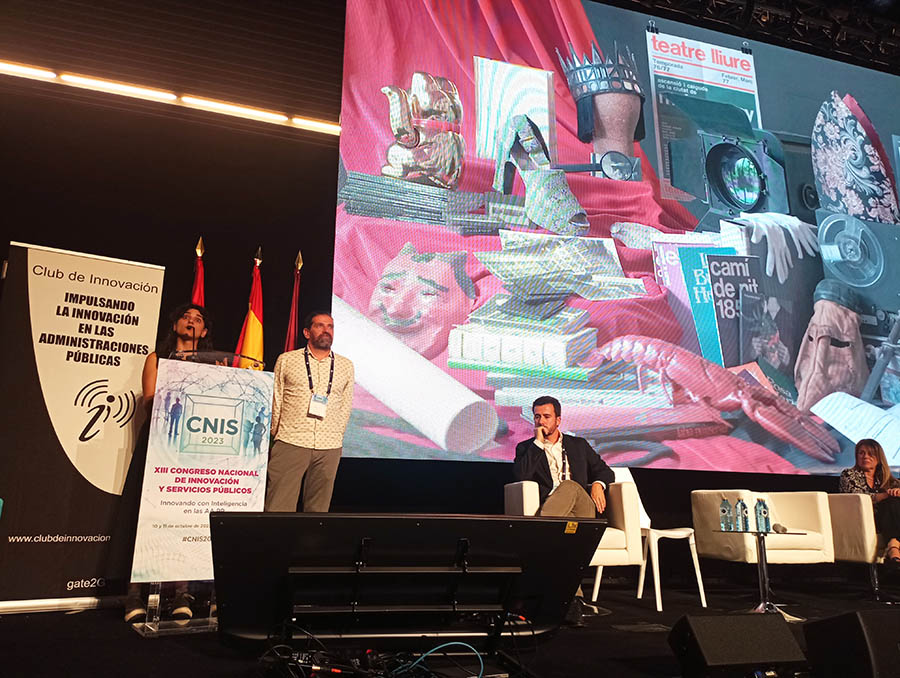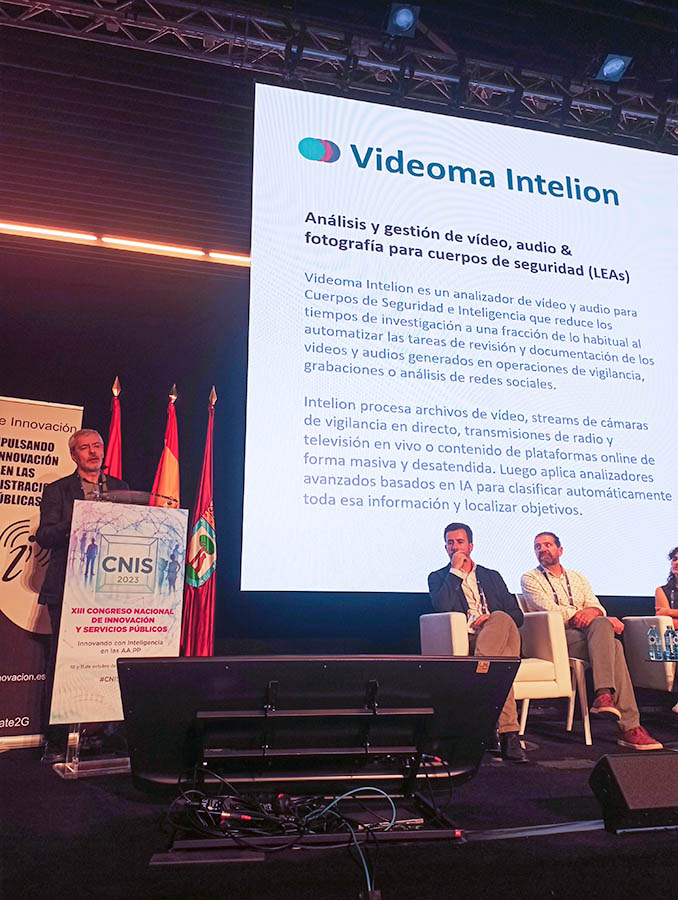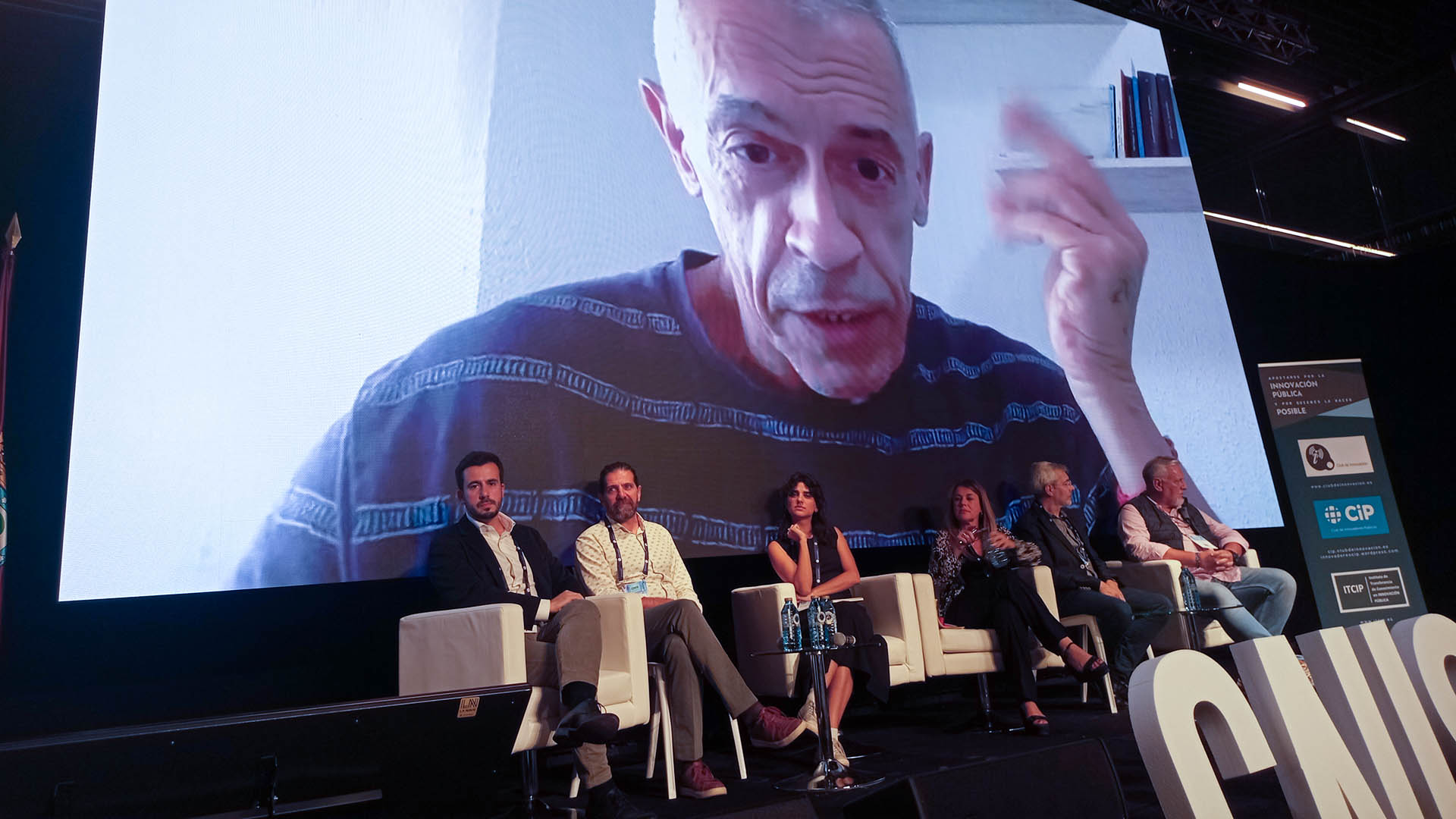A series of round tables were held on October 10 at #CNIS2023, the thirteenth National Congress of Innovation and Public Services (CNIS). ISID participated in one of them, called “A tour of artificial intelligence: 5 practical experiences”, together with other speakers from the AI and IT sector.
#CNIS 2023
Every year the Congreso Nacional de Innovación y Servicios Públicos is held in Madrid and on this occasion, as on previous years, the event took place in La Nave. For two days, technology and public administrations come together to catch up on the latest developments and learn about the needs of the State administrations.
The event has dozens of roundtables and talks on digitalization. This year there was a round table dedicated to the impact that artificial intelligence is having and may have in the future in Administrations.
5 speakers have presented their experiences in various projects related to AI and the public sector. In order, the interventions were the following:

5 use cases for AI in the Public Sector

Carlos Rodríguez Abellán, Lead NLP Engineer at Fujitsu spoke about the exploitation of documents through artificial intelligence and natural language. He gave a brief tour of the history of AI and how language models have been perfected, until reaching the point where we are today, where NLP has multiple applications in public administration, the health sector, the legal sector, banking, etc. He then placed special emphasis on how to apply AI to the processing of medical data.
Pep Casals Puig, Director of Nubilum and Anabel de la Paz, Head of Archive, Library and Heritage at the Teatre Lliure in Barcelona gave the presentation “From the unfeasible to the possible”. They described the project carried out at Teatre Lliure, where hundreds of thousands of historical photographs of Teatre Lliure have been classified using artificial intelligence, and then provide a portal at arxiu.teatrelliure.com where you can consult all those images and other multimedia or other files. guys.
Fernando Escudero, ISID Marketing and Communication, presented an experience related to Law Enforcement, where he showed how artificial intelligence can not only be used to commit crimes, but also to solve them. In a fictional but reality-based case, he demonstrated how video and audio analysis can locate crime suspects in record time.
Luis Morró, CEO of Transkriptorium, spoke of a success story in the recognition of handwritten texts. After a brief introduction to the technology, Luis showed some examples of how the system is capable of recognizing handwritten texts in multiple languages and in ancient calligraphy that are no longer preserved, offering an extremely high success rate. The particularity of the system is that it does not discard the other interpretations of the same text that are generated, thus offering a wide range to paleographers.
Finally, Núria Espuny i Salvadó, General Director of Digital Administration at the Generalitat of Catalonia, closed the interventions, speaking about how AI is being used in the Generalitat, with four example cases: chatbots with generative AI, clinical validations of dermoscopic images to help diagnose skin cancer, as well as a system that detects and sanctions traffic violations, as well as another, which adapts legal documentation to a language understandable to citizens.
The round table was moderated and closed by Alejandro Delgado Gómez. Head of Document Management and Archives of the Provincial Council of Albacete, who offered some brief points of view on how AI impacts administrations.
We thank the organization and ODILO for giving us the opportunity to show our technology and see what other initiatives the field of artificial intelligence is offering in public administrations. We hope to repeat the experience next year.

